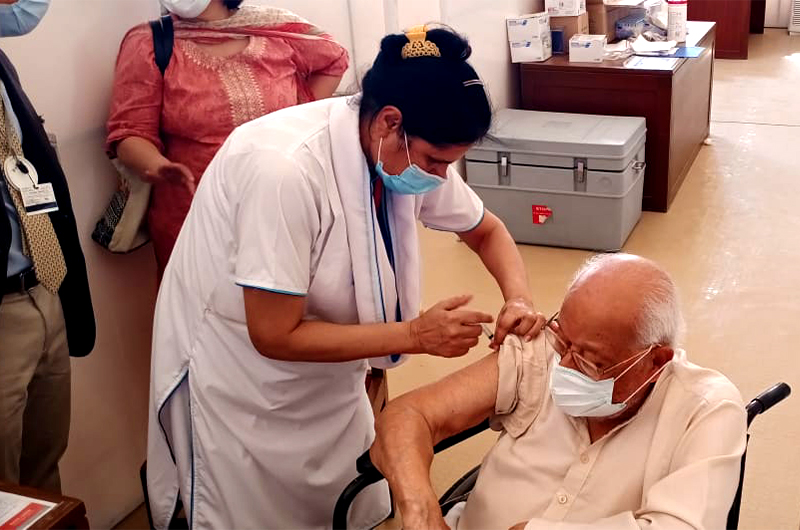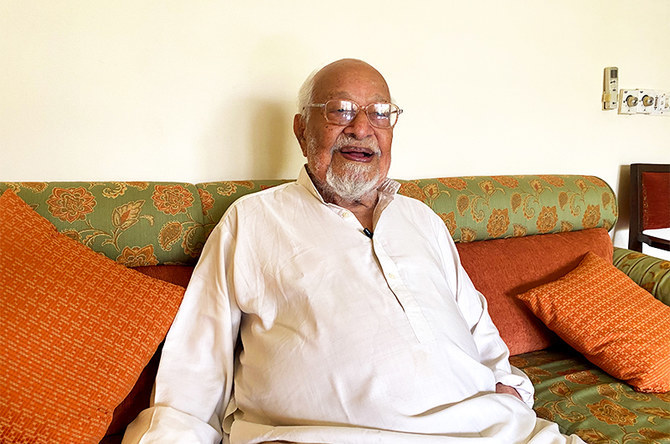KARACHI: A 100-year-old Pakistani, who survived the global pandemic of 1936 and witnessed the emergence and spread of the novel coronavirus, passed away in Karachi after a brief ailment, his family said on Wednesday.
Israil Ahmed Menai was believed to be the oldest Pakistani who got vaccinated against COVID-19 on March 12 and April 5 this year. He had also urged the public to take necessary precautionary measures against the disease by getting vaccinated.
“He remained in hospital due to breathing difficulties for a week and but peacefully passed away at home on Tuesday only a few hours after being discharged,” Mustafa Menai, his youngest son, said. “My father was very happy when he reached home. He wanted to serve his community through his legal practice and poetry, and we will strive to continue his legacy.”
Born in Rampur in present-day India on September 30, 1920, Menai celebrated his 100th birthday last year. His grandfather was the famous 19th century Urdu poet, Ameer Menai, and he received his early education in his hometown before going to Osmania University, Madras, for higher education.
After his family moved to Pakistan in 1950, Menai went to the Fletcher School of Law and Diplomacy and Harvard University on a Fulbright Scholarship. He started practicing law upon his return to his family’s newly adopted homeland and stayed in the profession for 70 years before suffering a cardiac arrest about six years ago.
He continued to visit courts and spent his free time in bar rooms.
When the government started vaccinating elderly citizens earlier this year, Menai decided to benefit from the immunization campaign.

100-year-old Israil Ahmed Menai, receives first dose of coronavirus vaccine in Karachi, Pakistan on March 12, 2021. (AN Photo)
“Such pandemics come and go,” he told Arab News in an interview at his residence in Karachi in March. “People should exercise caution like they did in the past under similar circumstances. There is no need to be scared.”
He recalled that his first experience with a pandemic was in 1936 when a plague started spreading in his hometown.
“Since there were limited communications means and news did not travel as fast as it does now, it looked like a local phenomenon,” he said. “The world has now transformed into a global village. Things that happen here get immediately reported in places as distant as New York or Seattle.”

100-year-old Israil Ahmed Menai, shows an old photo from his family album on March 23, 2021, in Karachi, Pakistan. (AN Photo)
Menai said his experience of the two pandemics was different for many reasons, but one commonality was the will of people to live and use all available resources to protect themselves.
“We may witness yet another pandemic in the future,” he added. “But man has always strived for his existence and health. These efforts [to produce and administer vaccines] are a continuation of the same thing and will endure in the future as well.”
















